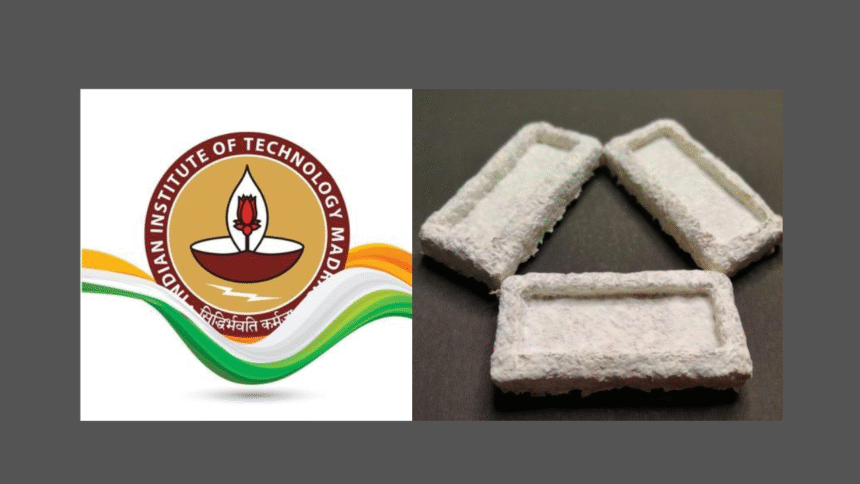NewzVille Science Desk
Researchers at the Indian Institute of Technology Madras (IIT Madras) have developed an agriculture waste-based packaging material that can be a sustainable alternative to conventional plastic foams used in packaging.
The researchers demonstrated that mycelium-based bio-composites grown on agricultural and paper waste were found to provide quality in packaging while being biodegradable.
This research has the potential to make a transformative impact on both society and the environment by offering a practical solution to two major problems – plastic pollution and agricultural waste disposal.
By converting agricultural residues into high-strength, biodegradable packaging materials, this work directly supports reducing plastic waste produced in India, which currently exceeds 4 million tonnes annually, and leverages the 350 million tonnes of agricultural waste generated each year.
The Researchers have already established a start-up called NatureWrks Technologies co-founded by Lead Researcher Dr. Lakshminath Kundanati, an IIT Madras faculty, to develop and commercialise innovative products, pursuing technology transfer in collaboration with industry partners, and exploring licensing agreements to enable wider adoption of these solutions.
Additionally, the researchers also aim to get government funding schemes to accelerate development and ensure that this research has a tangible, positive societal impact.
Replacing plastic foams like EPS and EPE with mycelium-based biocomposites can significantly reduce landfill burden, prevent microplastic formation, and cut greenhouse gas emissions associated with plastic production and waste incineration.
The technology also promotes rural development by creating demand for agricultural by-products, potentially generating new income source for farmers and rural communities. The use of local, low-cost substrates aligns well with India’s circular economy.
The findings were published during June 2025 in the reputed, peer-reviewed journal Bioresource Technology Reports (https://doi.org/10.1016/j.biteb.2025.102177). The Research Paper was co-authored by Research Scholars Sandra Rose Biby and Vivek Surendran and Dr. Lakshminath Kundanati from IIT Madras. This Research was funded by the NFIG (New Faculty Initiation Grant) of IIT Madras and the Ministry of Education, Government of India.






